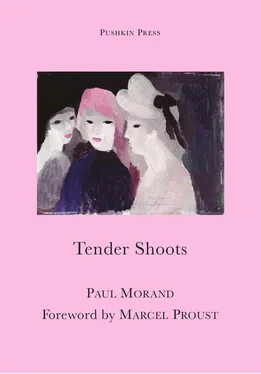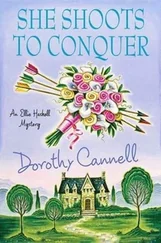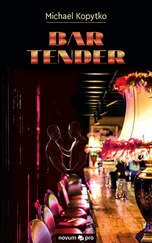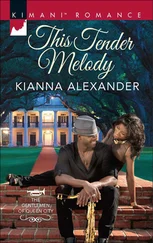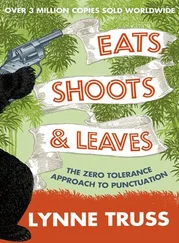Paul Morand - Tender Shoots
Здесь есть возможность читать онлайн «Paul Morand - Tender Shoots» весь текст электронной книги совершенно бесплатно (целиком полную версию без сокращений). В некоторых случаях можно слушать аудио, скачать через торрент в формате fb2 и присутствует краткое содержание. Год выпуска: 2011, Издательство: Pushkin Press, Жанр: Классическая проза, на английском языке. Описание произведения, (предисловие) а так же отзывы посетителей доступны на портале библиотеки ЛибКат.
- Название:Tender Shoots
- Автор:
- Издательство:Pushkin Press
- Жанр:
- Год:2011
- ISBN:нет данных
- Рейтинг книги:5 / 5. Голосов: 1
-
Избранное:Добавить в избранное
- Отзывы:
-
Ваша оценка:
- 100
- 1
- 2
- 3
- 4
- 5
Tender Shoots: краткое содержание, описание и аннотация
Предлагаем к чтению аннотацию, описание, краткое содержание или предисловие (зависит от того, что написал сам автор книги «Tender Shoots»). Если вы не нашли необходимую информацию о книге — напишите в комментариях, мы постараемся отыскать её.
Tender Shoots — читать онлайн бесплатно полную книгу (весь текст) целиком
Ниже представлен текст книги, разбитый по страницам. Система сохранения места последней прочитанной страницы, позволяет с удобством читать онлайн бесплатно книгу «Tender Shoots», без необходимости каждый раз заново искать на чём Вы остановились. Поставьте закладку, и сможете в любой момент перейти на страницу, на которой закончили чтение.
Интервал:
Закладка:
“She entered,” he said pompously, selecting affected words from that outmoded 1880 vocabulary that is no longer used except in university circles, “a public dance hall in the low district of Hammersmith. There is exceptional jazz there and for sixpence you can hire your male or female dancing partner. She appeared hung in black crêpe like a humorous catafalque, as if grieving in repentance, an Anactoria bearing the languor of each waltz like a new sin, flanked on one side by my friend Father W … (he mentioned the name of a Jesuit who had made a name for himself as a comic preacher) and on the other by a strange elderly Spanish child who enveloped her ill-defined features in a panther skin.
“She asked me whether I knew you and we talked about you. After the dance we all went to have breakfast at her home. We really did have a very good time, but she followed us with a sort of sinister pleasure, her eyes aflame and her mouth ashen. Her bruised and precocious heart appealed to me.
“‘Heart bruised with loss and eaten through with shame.’ One day I’ll read to you what I have written about that.”
And so Delphine, in a few weeks, had gone from the prayer stool to noisy revelry. I was not in the least irritated. Besides, I could not impose my own prejudices to the point of picking a quarrel with her. I did not yet know how quickly certain things are possible in London which Paris will always be unaware of as long as people live there side by side, divided by disdain or fear of the unusual. London is a furtive hermitage which those who have experienced it find hard to relinquish. The streets alone are filled with throngs, with cries, with advertising, with snobbishness, with commercial or sporting feats; they do not encroach upon the sweet open spaces where pleasure seems less perishable than elsewhere. And thus, I explained to myself, Delphine had moved from despair to pastimes that appeared to be going from bad to worse. “What will happen to this childhood friend?” I kept asking myself, without being able to create anything other than a false bond, as superficial as a relationship. “Why am I such a bad person?” I thought again of these words of Delphine’s as being the confession of a creature overwhelmed by mere consequences and who is unaware of the origins of the dispute in which she is the unreliable wager. Her childish despotism, that discipline she instigated around her, her revulsion for everything that was easy and likely to become a pleasure, could these be explained by the fear she had of herself?
“I don’t feel well,” she wrote to me; “the moment I’m no longer having fun, I fret to the point of fury. I waste my energy to such a degree that I’ll soon have to think of writing nothing but death announcements. But who is there to say goodbye to? A funerary summer mist and the whole city heated like an oven plate and my ignominy and your disapproval which I sense, is that spleen or what the Abbé Prévost called the ‘English vapours’? The sun looks as if it is shining through smoked glass, my food tastes of phenol, I can’t sleep any more, and only at night do I find brief moments of coolness, in the parks, or thanks to the powder, well mixed with borax alas, from a little pharmacy in the Commercial Road …”
June had come. The university students, dressed in white flannel, were devouring a false summer consisting of icy sunshine, unkempt greenery and too much water. Doctors in mortarboards passed by along the river, preceded by a boat with a brass band on board. Families, hailing from surrounding areas, on coaches, offered each other sugar from one top deck to another; drapery shop assistants brought out end-of-the-year dress suits and did their best not to feather their oars, not to bump their boats, to show good manners and to call each other “Mister”.
At the sight of their sons, the war-profiteers took their revenge on a back-shop childhood and came down from the north in nickel-plated cars with the face of a footman in each headlight. Worn out by provinces that had their fill, the actor Benson arrived with his Shakespearean troupe, his wretched watery scenery, his torn and wobbling fortresses, and we endured thirty-five acts in one week, by subscription. The sides of the roads were adorned with picnics, with irises, with injured motorcycles. The countryside had become a green desert in which peasants in jackets and bowler hats paraded. No hollow, limed apple tree could avoid bending over the cloud-dappled water, the wake of a boat and the smell of a spirit lamp; the hay-fever of phonographs broke out from among the reeds, restoring to nature the poetry which, in order to succeed, they had borrowed from her. A full liquid fair now held court until the end of the summer term, ushering in as at the finish of a race, with encouraging cries, amid a noise of rattles, fire-crackers, rag-time and a smell of insipid lemonade and cut-price tea, the end of the academic year.
There was a nocturnal fête over Mesopotamia. The college jetties formed brightly lit shapes, half of which vibrated. Corks popped into the river, rockets became tangled in aqueducts, Bengal lights diffused a creamy layer striated by the water. Alone, I drove my canoe and its cushions damp with dew towards the locks. Searchlights streamed directly over the warm obscurity of the layers of electricity ensnaring Islington church where black ivy and boats that sang drooled. One of them appeared, as though through a suddenly opened door, in the path of the beam. I remained in the darkness, alongside it, and I recognised Delphine, all white, the jet of light full in her face, who was smoking. She seemed drunk and appeared to be gently drifting away. Mrs Warford was also at the bottom of the boat, from where her grey, frizzy hair, which enabled me to recognise her, emerged. In the bow, his feet above the water, playing the banjo, perched an individual of doubtful aspect whom I took for an Italian Yankee. Between his gorilla-like jaws, he held a lighted Chinese lantern, which illuminated from below a Charlie Chaplin moustache and two black nostrils. The night engulfed them again all of a sudden. I saw Delphine throw overboard a lighted cigarette which sputtered.
I was confused and troubled as though I had been done a wrong. Not because I had, with my own eyes, glimpsed in Delphine this new persona that I had foreseen, defiled and prey to deformed people, but because she had concealed her presence from me in a place where I considered myself to be at home. Shortly afterwards, I received a letter from her that did not mention she had left London. My friendship regarded this as a deception, then, reckoning that she may no longer be free, became alarmed. I felt sorry to see a once perfect creature surrendering herself to this abandon, ready to rejoin the sinister herd of lone women, sustained by affairs, one of those whom a vague but imperious calling distances both from the love of self which rescues beautiful women and from the natural attachments which satisfy the others.
It was the very displeasure that this incident caused me, or the interest I suddenly took, despite my mood, in Delphine that led me one month later, at the end of the academic year, to the Ebury Street studio whose address Fraser had given me.
It was reached through a disused cemetery beneath whose lush grass, inert, large Anglo-Saxon skeletons, not deformed by death, continued to live. Outside the garages, the cars being washed filled with freshness a street already lightened by its curtains, its brasses, its red doors, its mirror and ‘panorama-ball’ merchants, and its glazed paper manufacturers. In the windows of estate agents, photographs eroded by the light provided rustic scenes of bungalows, of bushy trees, of spacious lawns.
I had to knock a long time, even though noise could be heard behind the door. Then Delphine’s voice. There was a jingle of keys and chains and the door half-opened onto a pale, puffy face, in which the nose was prominent; the eyelids seemed too short for the eyes. I was so taken aback, that a friendly joke about the way she bolted herself in like an octogenarian failed to pass my lips.
Читать дальшеИнтервал:
Закладка:
Похожие книги на «Tender Shoots»
Представляем Вашему вниманию похожие книги на «Tender Shoots» списком для выбора. Мы отобрали схожую по названию и смыслу литературу в надежде предоставить читателям больше вариантов отыскать новые, интересные, ещё непрочитанные произведения.
Обсуждение, отзывы о книге «Tender Shoots» и просто собственные мнения читателей. Оставьте ваши комментарии, напишите, что Вы думаете о произведении, его смысле или главных героях. Укажите что конкретно понравилось, а что нет, и почему Вы так считаете.
